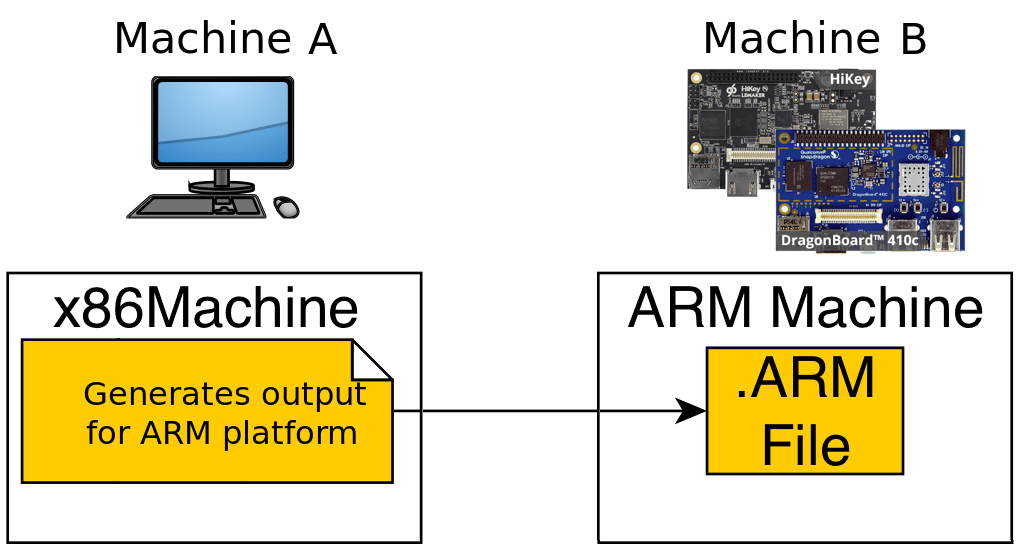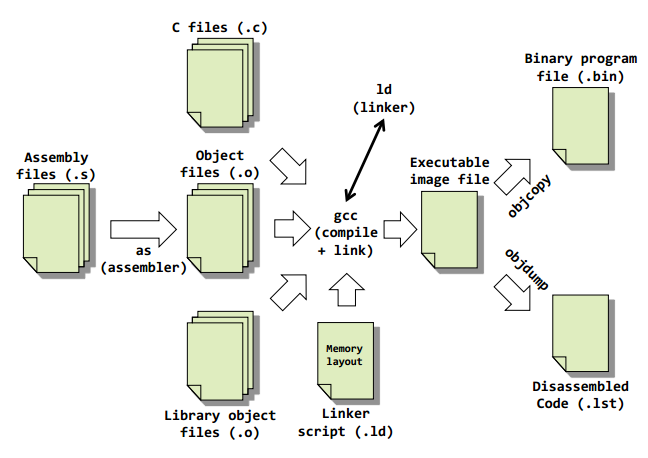

- Makefile cross compile c library linux mac os mac os#
- Makefile cross compile c library linux mac os manual#
- Makefile cross compile c library linux mac os upgrade#
- Makefile cross compile c library linux mac os full#
- Makefile cross compile c library linux mac os software#
For example, libraries should generally be compiled as universal binaries even if you are exclusively targeting an Intel-based Macintosh computer, as your library may be used by a PowerPC binary running under Rosetta.
Makefile cross compile c library linux mac os software#
Compiling for Multiple CPU Architecturesīecause the Macintosh platform includes more than one processor family, it is often important to compile software for multiple processor architectures.
Makefile cross compile c library linux mac os manual#
Do not attempt to replace the version installed in /usr/.įor additional information about using the GNU autotoolset, see and the manual pages autoconf, automake, and autoheader. Note that autoconf, by default, installs in /usr/local/, so you may need to modify your PATH environment variable to use the newly updated version.
Makefile cross compile c library linux mac os upgrade#
However, if you find it necessary to upgrade autoconf, you can get a current version from. In general, most projects include a prebuilt configure script with releases, so this is usually not necessary unless you are building an open source project using sources obtained from CVS or from a daily source snapshot. Because autoconf changes periodically, you may actually need to get a new version of autoconf if you need to build the very latest sources for some projects. Some programs may use autoconf macros that are not supported by the version of autoconf that shipped with OS X. After you do that, more extensive refactoring may be required. Beyond these basics, if the project does not build, you may need to modify your makefile using some of the tips provided in the following sections. OS X includes autoconf in the BSD tools package. If that still fails, you may need to run /usr/bin/autoconf on your project to rebuild the configure script before it works. If you are distributing applications that use autoconf, you should include an up-to-date version of config.sub and config.guess so that OS X users don’t have to do anything extra to build your project. If running the configure script fails because it doesn’t understand the architecture, try replacing the project’s config.sub and config.guess files with those available in /usr/share/automake-1.6. Just run configure and make as you would on any other UNIX-based system. If you are bringing a preexisting command-line utility to OS X that uses GNU autoconf, automake, or autoheader, you will probably find that it configures itself without modification (though the resulting configuration may be insufficient). Using GNU Autoconf, Automake, and Autoheader These issues apply largely without regard to what type of development you are doing.


This section covers some of the more common issues that you may encounter in bringing your UNIX application to OS X. Now that you have the basic pieces in place, it is time to build your application. * Reliable message transport protocol implemented over UDPĭevelopment Tools: The HS MSG library is provided with the following project build environments: * Deliver messages to different queues created either by different distributed computers or by differnet processes on the same computer or to local queues belonging to the same process * Simultaneous messages sending and reception, multiple concurrent message sessions are supported * C Source code suitable for porting to embedded devices
Makefile cross compile c library linux mac os mac os#
* Cross platform C library for Windows, Unix/Linux, MAC OS X, iOS * Capability to send and receive messages containing large data buffers (segmentation, re-assembly re-transmissions are handled by internal protocol) * Message sending asynchronously (HsMsgPostMessage()) or synchronously (HsMsgSendMessage())

* Message reception asynchronously (poll method) using HsMsgPollQueue() * Simple C interface for message sending and reception
Makefile cross compile c library linux mac os full#
HS MSG is supplied with full C source code. HS MSG C/C++ messaging SDK runs on Windows, Linux, MAC OSX, iPhone iOS. HS MSG is a C/C++ messaging library (message oriented middleware) for communication between threads of the same process and between different processes on the same or on different computers.


 0 kommentar(er)
0 kommentar(er)
